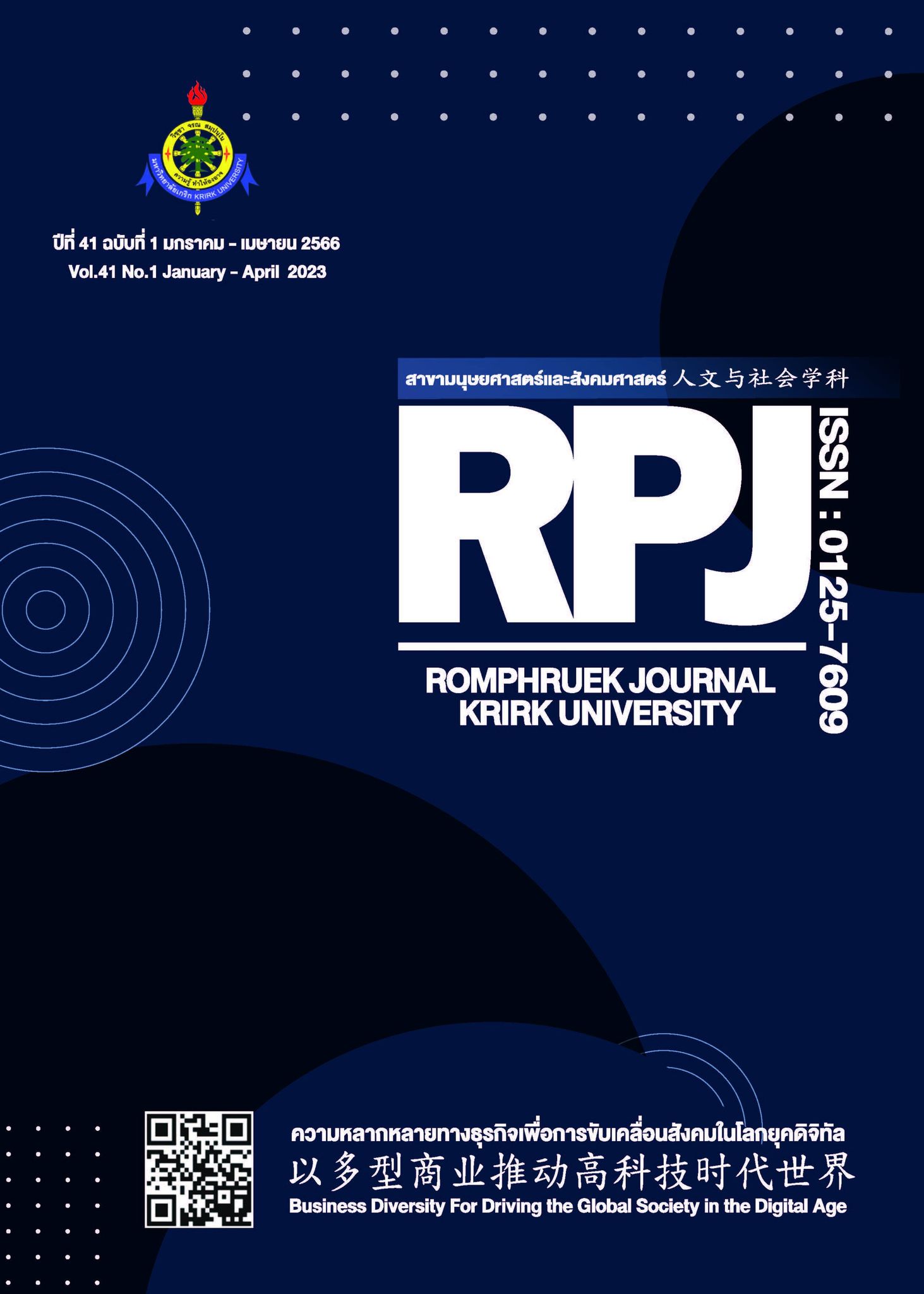The Effectiveness of The Leisure Behavior Development Program for Self Development of Senior High School
Main Article Content
Abstract
This research is an experimental research. The objective of this study was to assess the effectiveness of the leisure behavior development program for senior high school students’ self-development . These 40 students were randomly assigned to an experimental group of 20 and a control group of 20 using a simple random sampling method. The program's concepts were derived from Leisure Education theory and practice, as well as Bandura's Social Cognitive Theory of Learning, as well as concepts used in program activities like Self-Determination Theory and the concept of Flow Theory. The research instrument was a questionnaire which asked about factors affecting leisure behavior and was classified as a 5 level estimator with confidence values between .701 – .857. To measure leisure behavior and self development the data received were analyzed using general statistical analysis, multivariate covariance (MANCOVA). The findings revealed that the students who participated in the leisure behavior development program for self development had higher leisure behavior for self development than those who did not attend the program (p<0.01).
Article Details

This work is licensed under a Creative Commons Attribution-NonCommercial-NoDerivatives 4.0 International License.
Every article published in the Romphruek Journal of the Humanities and Social Sciences is the opinion and point of view of the authors. Thery're not the viewpoint of Krirk University or the editored department. Any part or all of the articles for pablication must be clearly cited.
References
กระทรวงศึกษาธิการ. (2563). สภาวการณ์การจัดการเรียนรู้เชิงพื้นที่ในบริบทประเทศไทย. กรุงเทพฯ : โรงพิมพ์ชุมนุมสหกรณ์การเกษตรแห่งประเทศไทย.
ปัญจนาฏ วรวัฒนชัย. (2563). พฤติกรรมที่เป็นปัญหาของสังคม. วารสารสารสนเทศ, 19(2), 1-16.
สำนักงานกองทุนสนับสนุนการสร้างเสริมสุขภาพ (สสส.). (2561). รายงานประจำปี 2561สำนักงานกองทุนสนับสนุนการสร้างเสริมสุขภาพ. กรุงเทพฯ : มปท.
Bandura, A. (1986). Social foundations of thought and action: A social cognitive theory. Englewood Cliffs: Prentice-Hall.
Byrne, Tina ; et al. (2006). Free-time and leisure needs of young people living in disadvantaged communities. Dublin : Children’s Research Centre, Trinity College. Dublin & Combat Poverty Agency.
Caldwell Linda L. ; et al. (2010). Influencing Adolescent Leisure otivation:Understanding leisure-related program effects. HealthWise South Africa project. Journal of Park and Recreation Administration. 32(2), 146–162.
Caldwell, Linda L, & Witt Peter A. (2011). Leisure, recreation, and play from a developmental context. USA : The Pennsylvania State University.
Darling, N., & Caldwell, L. (2005). Participation in school-based Extracurricular activities and adolescent adjustment. Journal of Leisure Research, 37(1), 51-77.
Hutchinson S. (2012). Leisure Education: A New Goal for An Old Idea Whose Time Has Come. Pedagogía Social, 19(1), 127-139.
Mundy, J. (1998). Leisure Education. Champaign. Illinois. USA : Sagamore Publishing LLC.


